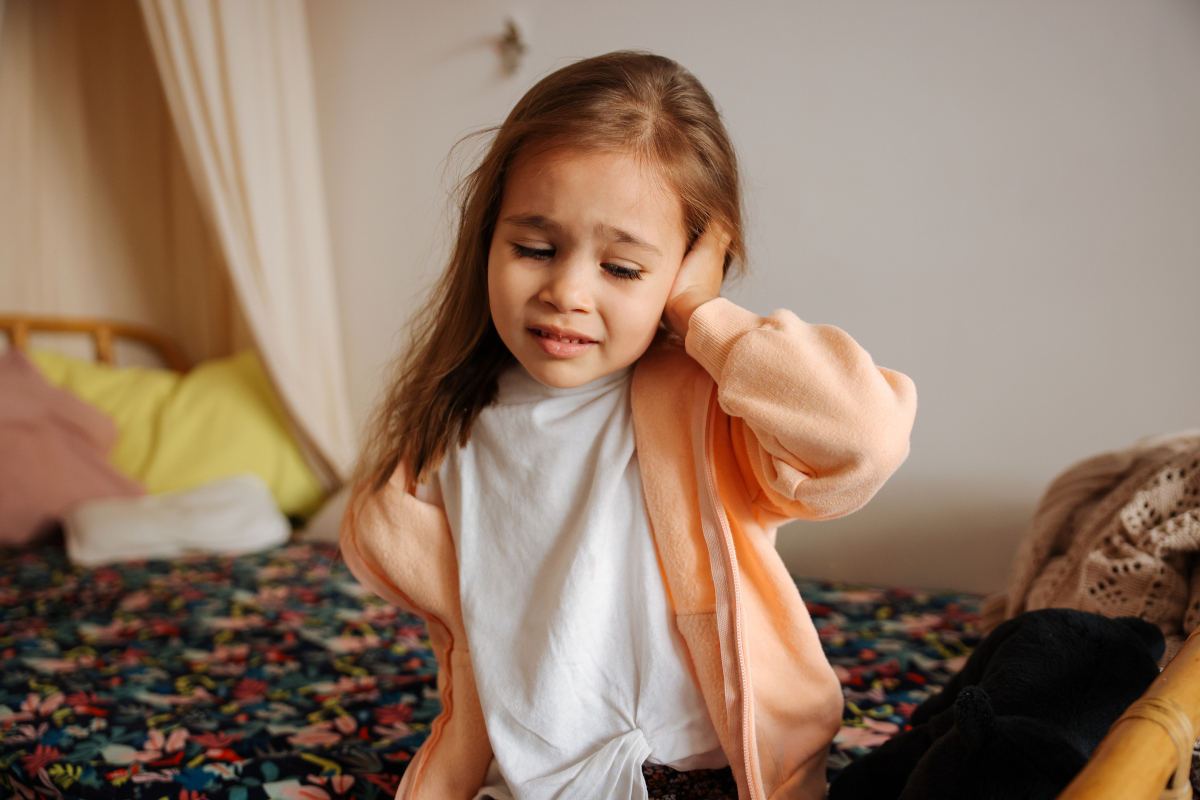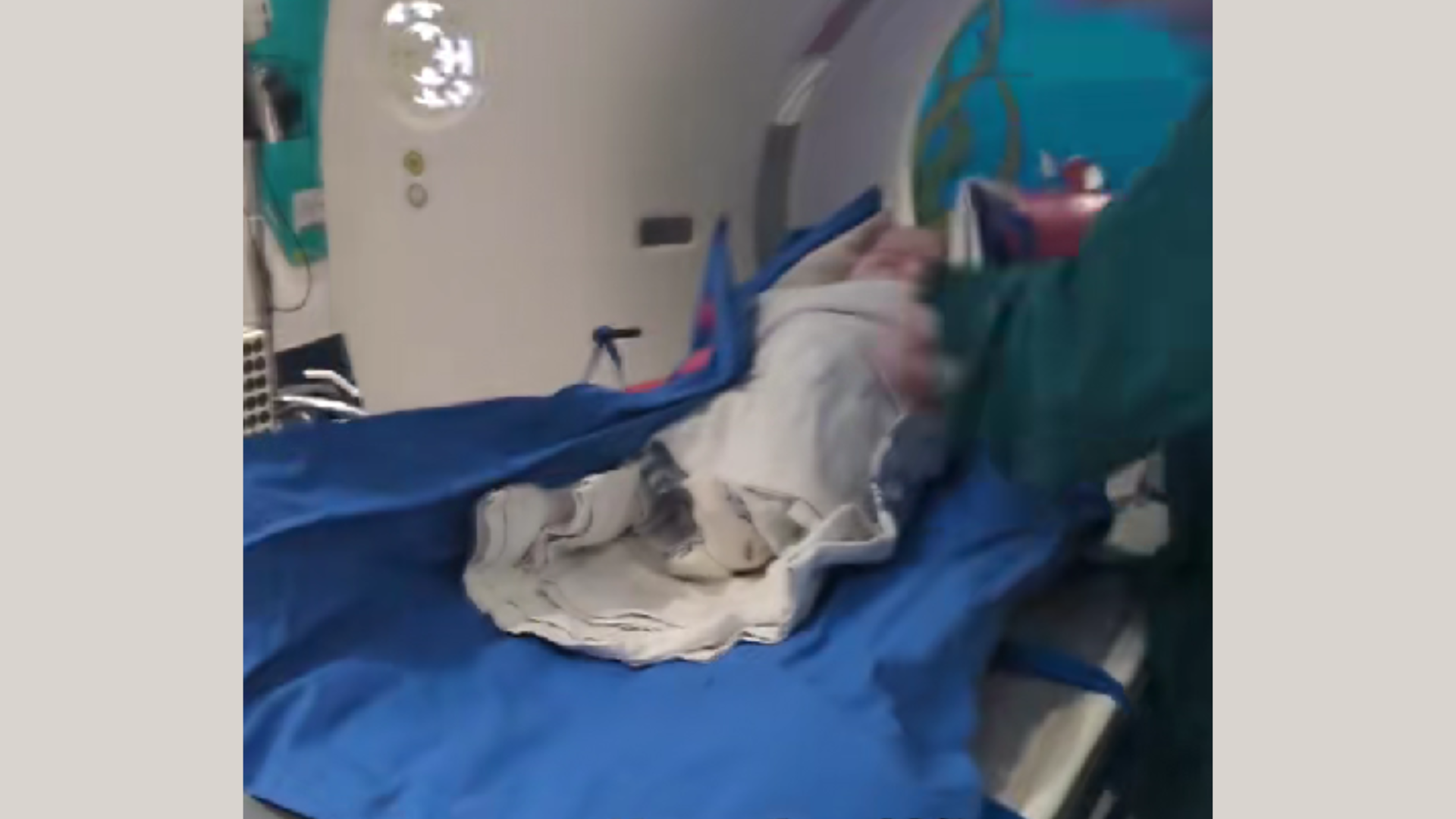Can Babies Get Strep Throat?
:max_bytes(150000):strip_icc()/GettyImages-1294031305-0adf94ff6e984d5c9c48610bdc241c4c.jpg)
Strep throat (pharyngitis) in babies and toddlers under three years old is rare. Babies who are diagnosed with strep throat usually have mild symptoms that may include fever, irritability, and difficulty feeding.
Most cases of strep throat in babies are caused by a virus and get better without the need for treatment. However, strep throat can also be caused by the bacteria Group B Streptococcus (Group B Strep). In babies, Group B strep, or GBS, can lead to serious illness.
This article covers the symptoms of strep throat in children and how to treat it. It also lists the signs of a Group B Strep infection in babies and when to call your healthcare provider.
FatCamera
Can Babies Get Strep?
Yes, babies can get strep throat, but it is rare. Even when babies contract strep throat, their symptoms are usually mild and do not require treatment. However, children over age 3 are more likely to get sick with strep throat and are at a higher risk of experiencing complications.
Average Age of Infection
Strep throat is most common in children aged 5 to 15. Sore throats and respiratory illnesses are common in kids of all ages. Each year there are about 11 million visits to ambulatory care centers for a sore throat in children ages 3 to 18. Strep throat makes up about 15% to 30% of those cases. Strep throat tends to be more common during the coldest months of the year.
GAS vs. GBS Infection
Group A Strep (GAS) is the bacteria that causes strep throat and other illnesses. Group B Strep (GBS) is a type of bacteria that generally lives in the body and usually does not cause illness.
Pregnant people can be carriers of GBS without knowing it. This bacteria can then be passed to their babies during childbirth, leading to serious illness.
In the United States, GBS bacteria are the leading cause of bloodstream infections and meningitis in a newborn’s first three months of life.
Testing for GBS Pre-Labor
It is recommended that all pregnant people be tested for GBS before they go into labor. In women, GBS is found in the vagina and the rectum. GBS can be passed from mother to child during the birth process.
It’s important to note that it is rare for someone to pass GBS to their babies. It’s estimated that 1 to 2 out of every 100 people who are positive for GBS will transmit the bacteria to their baby. The risk is much lower for individuals treated with antibiotics during labor.
When you are pregnant, your healthcare provider will recommend a GBS screening sometime between 36 and 38 weeks of pregnancy. Your healthcare provider will take a sample from the vagina and the rectum to culture. If your culture comes back positive for GBS, intravenous (IV) antibiotics will be administered to you once labor starts.
Signs of Strep in Kids
Children over age 3 are most likely to experience strep throat symptoms. Signs of strep throat usually present about two to five days after being exposed. Common signs of strep throat in school-aged children and teenagers include:
- Painful sore throat
- High fever
- White patches of pus on the tonsils
- Swollen glands
- Headache
- Nausea
- Vomiting
Children under 3 are much less likely to experience strep throat. When they do, the symptoms are often mild and may include:
- Low fever
- Thickened nasal discharge
- Irritability
- Decreased appetite
Signs of infection from GBS in babies include:
- Fever
- Irritability
- Decreased appetite
- Lethargy
- Trouble breathing
- Blue color to the skin
Are You a Carrier if You’re Breastfeeding?
It is possible for both children and adults to be carriers of strep. Carriers would test positive if tested for strep but have no symptoms.
It is very rare for people who are carriers of GBS to transfer the bacteria to their babies via breast milk. If someone is not treated for GBS during childbirth, there is a slight chance that the baby could be exposed while breastfeeding. It is helpful to remember that breast milk also contains beneficial antibodies that will protect a child from strep as well.
During Pregnancy
It is possible for pregnant people to be carriers of strep. Most carriers of both GAS and GBS are not aware that they carry the bacteria. All pregnant people should be screened for GBS towards the end of their pregnancies.
When Kids Need a Strep Test
Your healthcare provider will recommend a strep test for your child when they strongly suspect that your child has strep throat. It’s estimated that strep throat is the cause of about 20% to 30% of sore throats in children and 5% to 15% of sore throats in adults.
If your child has a sore throat with classic viral symptoms, they most likely do not have strep throat. It is not recommended to test for strep in children who have the following virus symptoms:
- Cough
- Runny nose
- Eye drainage
- Hoarse voice
Strep throat can be detected with a rapid antigen detection test (RADT) or a throat culture. These tests are highly sensitive. Testing is usually not recommended for adults or children under age 3.
Risks of Untreated Strep Throat
Strep throat in children needs to be diagnosed and treated by a healthcare provider. When left untreated, the symptoms can last for about eight to 10 days. Children who do not receive antibiotics will stay infectious for up to a week.
While it is rare, untreated strep throat can lead to serious complications in children. Possible complications include:
- Pus in the tonsils or back of the neck
- Rheumatic fever
- Post-streptococcal glomerulonephritis
- Ear infection
- Sinus infection
Treatment Period
Children with strep throat need to receive treatment as soon as possible to relieve the symptoms and reduce the risk of spreading the illness.
Antibiotics
Antibiotics are prescribed to treat strep throat. Taking antibiotics as prescribed can shorten the duration of symptoms and help prevent possible complications.
The recommended antibiotics for strep throat are penicillin or Moxatag (amoxicillin). If your child has a penicillin allergy, your healthcare provider may recommend Keflex (cephalexin), cefadroxil, Cleocin (clindamycin), Zithromax (azithromycin), or Biaxin (clarithromycin).
Limiting Spread
Strep throat is very contagious among children and easily spreads in crowded environments like schools and daycares. To limit the spread, children should stay home until they are fever-free (afebrile) and have been taking antibiotics for at least 12 hours.
Additionally, there have been a few reports of infants who have gotten sick with GBS after consuming food that was pre-chewed (pre-masticated) by a parent who had pharyngitis. If you are experiencing any symptoms of illness, take care to avoid pre-chewing your infant’s food.
Home Remedies
Strep throat can be painful for children. Fortunately, antibiotic therapy provides relief quickly. In addition, gargling with warm salt water can help relieve throat pain. Tylenol (acetaminophen) can also relieve pain and reduce the discomfort from a fever.
Summary
Strep throat is a respiratory illness that can be a virus as well as the bacteria Group A strep. It most commonly affects school-aged children and teenagers. It is rare for babies to be diagnosed with strep throat.
Treatment includes antibiotics, staying home, and natural remedies to ease discomfort. It is possible for babies to become seriously ill from the bacteria Group B strep. Most pregnant people are screened for GBS before going into labor, so they do not pass it on to their babies.
link

:max_bytes(150000):strip_icc()/carriemadormo3-0d20d62434bb4344bdea385664529e28.jpg)
:max_bytes(150000):strip_icc()/asian-sick-little-girl-lying-in-bed-with-a-high-fever-952683074-5b5b784046e0fb005027ca13.jpg)



